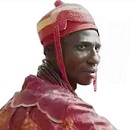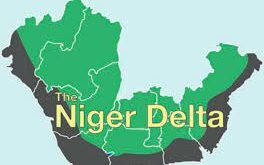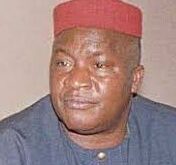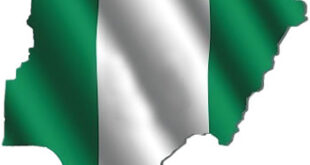By Young Erhiurhoro
The above topic is quite expedient as it’s woven round two important divine and traditional tools of “pulpit and palace.” A pulpit in this usage is a description of the church and the clergy, while the palace is a description of a royal throne and the king. These two divine tools are different in operation but drive towards a common goal and destination. This is so as an Urhobo adage described it clearly that, “one owns the land where the herbalist practices.” That is, the king owns the community where the pastor preaches the Word of God. They must be in close tandem if they want to work together in harmonious ways.
More importantly, before we move further in this short essay, we must understand that, when we are talking about the palace and the king in Urhobo land, it means the traditions, customs and the general culture of the people. In fact, the king in Urhobo is the chief custodian of the culture of the people. In this case, there are certain cultural rites and obligations the king must perform while in the throne.
Failure to perform or partake in such cultural practices would mean abomination to the land and the people. This can place the people on curses and doom. Several examples of kings that neglected their cultural and traditional obligations and later resulted to deadly calamities in their domains can even be picked from the Holy Bible especially from the books of the Prophets and the Kings.
Back to our various kingdoms in Urhobo land, such uncontrollable calamities also happened in those days whenever a king refused to perform his cultural and traditional rites and obligations as at when due.
Urhobo as the fifth largest ethnic region in Nigeria has twenty-two recognized kingdoms and kings at the moment. In all these kingdoms, there are pre-coronation rites, coronation rites and post-coronation rites which the kingmakers will perform to coronate a new king and there are certain rites too which the coronated king will also perform and vice versa. These are not alien to the people. They vary from one kingdom to another in Urhobo land. These are well laid down historical foundations binding the origin and identity of such kingdoms and their indigenes. The processes of installing or crowing a king in Uwheru kingdom is different from that of Ughelli kingdom and so on and so forth. And that is how it’s in all the kingdoms in Urhobo land. In the same way, the processes of inheritance are different from one kingdom to another. There are some kingdoms that are primogeniture in nature e.g Ughelli, Ogor and Agbarha-Otor while others are by rotation or selection from selected royal houses in such kingdoms. Those in this group are Uwheru, Evwreni, Uvwie, Okpe, Orogun, Olomu etc. This second group in Urhobo land has led to series of crises in different kingdoms as a result of “who the crown fits.”
Therefore, after the final coronation and crowning of the king, he is now the chief custodian of the people’s culture and also the mouthpiece of the people in public places. The king is a replica and the spiritual image of the forebears of the kingdom. He’s there to appease the ancestral spirits of the land represented here with certain images or sticks known in Urhobo as “Ephon” on daily basis by pouring libations on them. He also offers prayers and sacrifices to certain deities in the kingdom especially during festive periods in the kingdom. The king in this case is duty bound to perform all these cultural and traditional obligations as the image maker of the people. No other person can perform the duties of the king except the king alone. In those days, if the king refused to perform some of these obligations, it might spelt cultural doom or other calamities in the entire kingdom. This may result to strange sicknesses attacking the people or death of young people or children in the land. Women could also die during childbirth and many other calamities. This could happen as a result of the negligence of the king to perform his traditional and cultural rites in the throne.
However, so many things pertaining to Urhobo kingdoms and their kings have changed in the past decades. This is so pronounced and noticeable at the beginning of this fourth revolution blowing round the African continent. This new revolution is blowing in diverse ways across the entire African continent at the moment. This has greatly affected all the kingdoms in Urhobo land. It has shaken the cultural and historical foundations of the Urhobo people to the roots. Today, everybody wants to identify with the new waves of globalization and civilization currently taking a solid stand in every kingdom. In doing this, our cultural bond and heritage that held us together as a group of people have given way to more alien and foreign cultural practices and ways of life.
One of such is the Church today in Urhobo land. Everybody wants to be identified and called a Christian. Nobody wants to be a pagan again. This has also extended to all Urhobo kings. All the Urhobo kings at the moment are all Christians. This is really a great religious feat and achievement in the turn of this century. Even today, there are Christian worship centres in almost every palace of a king in Urhobo land. Without having such a worship centre, then it means you are not ready to rule the people as their king yet. No king wants to dabble into practicing what their predecessors did in the past. Today, there are kings that are certified pastors. They rule the people with the Word of God. Their staff or symbol of authority as a king now is the Holy Bible. We are already catching the glimpse of acculturation in Urhobo land in high weight.
But my worries and fears in this wind of cultural change blowing fiercely in Urhobo land at the moment is this question, how can a king really be a dedicated Christian or a pastor? There was a lyric sang by one of these Urhobo traditional musicians that, “after the king returned from the church service, he fixed the day for the celebration of a festival in his domain.” This is quite confusing! How can the Urhobo king separate himself from participating in those cultural and traditional obligations in his hands? This is not possible to the truth of the matter.
Yes, I know somebody will counter me by mentioning the late Ohworode of Olomu kingdom and maybe few other ones as dedicated and committed Christians or pastors, yet they are kings. The late Ohworode of Olomu kingdom was made a Royal Canon of the Anglican Church in Nigeria. As at the time of his passage, he was the only known Royal Canon in the whole of Africa. Even with this great religious achievement and honour, are you saying that the said king forgot his cultural obligations to his people in his domain? He might not involved himself in certain fetish practices, but it was not enough reason to conclude that, the Ohworode of Olomu kingdom didn’t participate or perform some cultural and traditional activities in his domain as a king.
Today, the Urhobo cultural heritage is weak and so many foreign and alien practices are infiltrating in high speed. This cultural change affecting our kings and their thrones is not the same in Yoruba and Igbo ethnic groups. Let’s not go too far. It’s not the same in Itsekiri and Izon ethnic groups. These are neighbouring ethnic groups to the Urhobo people. These ethnic groups mentioned still hold their cultural heritage and values in high esteem especially to the obligations and functions of their kings and the management of their thrones. They are people that won’t allow any foreign practice to contaminate their inherited culture. In this case, you can never present yourself to the kingmakers as a pastor and expect them to crown you as a king. This is what they will refuse to accept as part of their cultural practices. These groups of people still protect and promote their culture with the pale eyes of globalization and civilization.
Though in Urhobo land, most of the kings that claimed to be Christians with high titles and positions in the Church, are only doing it as part of social emblem and proclivity to join the current fourth revolution. Interestingly, many of them are just going to the Church as a social club. Their faith and religious beliefs and practices lies in the historical foundations of such thrones. This is what they do without the knowledge of so many of their subjects. They may do them in secret. However, this is outrightly wrong for a king to hide himself to do what is expected of him as a public figure. As a king, just let the people know that you are installed for the entire kingdom and not just for a particular religious group in the domain. Therefore, as a king you can go to the Church as a ceremonial worshipper or a guest. In the same way, you can attend another religious centre in your kingdom. This is because you are a king and you are culturally bound to participate in all cultural activities in your kingdom.
Young Erhiurhoro;Kjc is a reporter and a member of the Urhobo Historical Society.
 PH Mundial – Port Harcourt Online Newspaper News Across The Region
PH Mundial – Port Harcourt Online Newspaper News Across The Region





